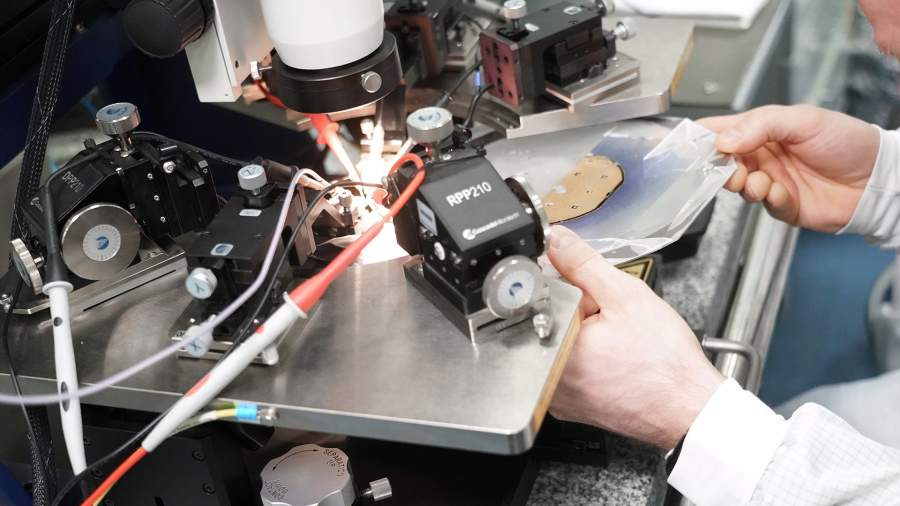
China fires back at USA in micro chip war
The US and China are currently entangled in an undeclared technological war, with both countries exchanging blows. Following the US's tightening of the exports of advanced chips to China, including those designed for the Chinese market, Beijing has responded by intensifying controls on the export of particular types of graphite. This material is crucial for electric vehicle batteries. At the same time, it clarified that the rationale for the tightening was based on national security and interests, echoing the explanation given in Washington a few days ago for the export of chips. According to US Ambassador to China Nicholas Burns, the new regulations will seal any loopholes in previously imposed restrictions that the Chinese were able to circumvent.
The Ministry of Commerce of China stated that these new provisions will take effect on 1 December. We are discussing certain graphite variants that classify as dual-use commodities and basic materials. In other words, these variants are utilised not only in civilian products, but in military ones as well.
Before this decision, the Ministry of Trade of the People's Republic of China explained that the rules of 2006 regulated the export of graphite. Concurrently, Beijing announced the cessation of temporary export controls on lesser significant forms of graphite, including those for steelmaking and chemicals.
Graphite is a critical element of electric vehicle battery anodes. Batteries are created by using either graphite extracted from mines or synthetic graphite. Synthetic graphite is significantly more costly, but it lasts longer and enables the battery to charge at a quicker pace, enhancing its safety.
China is the world's leading exporter of graphite, accounting for 60% of natural graphite exports and 90% of synthetic graphite, according to analysts..
"There's no doubt that tighter export controls will significantly impact the electric vehicle battery industry," stated Daniel Collar of the Intralink consultancy. "It depends on how much pressure Beijing places on the sector."
The Ministry of Commerce of the People's Republic of China underlined that the steps taken are not aimed at any particular region or country and are ordinary measures. However, James Lee, an analyst specializing in electric vehicle batteries at KB Securities Co., described the measures as "shocking".
"China is playing its final and most powerful card in negotiations with the US," Li explained.
Washington may retaliate with its own countermeasure after another Chinese move, potentially restricting the utilization of Chinese batteries in Tesla Inc.'s electric vehicles. Elon Musk's firm operates a megafactory in Shanghai, where over half of its electric vehicles are manufactured. In August, China implemented export restrictions on gallium and germanium. These metals are vital components within the semiconductor, telecommunications, and electric vehicle industries. Although the restrictions were time-limited, lasting only one month.
